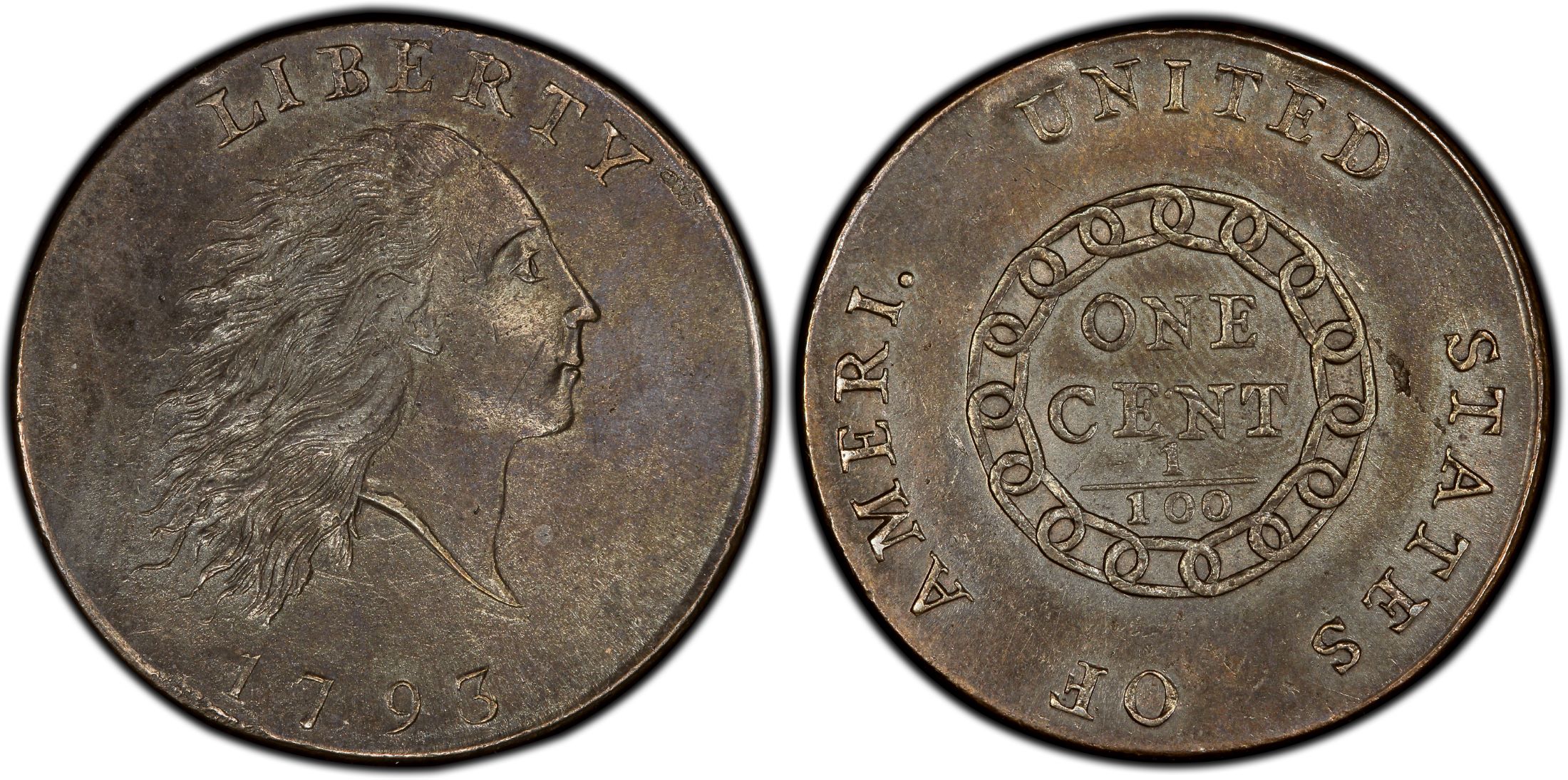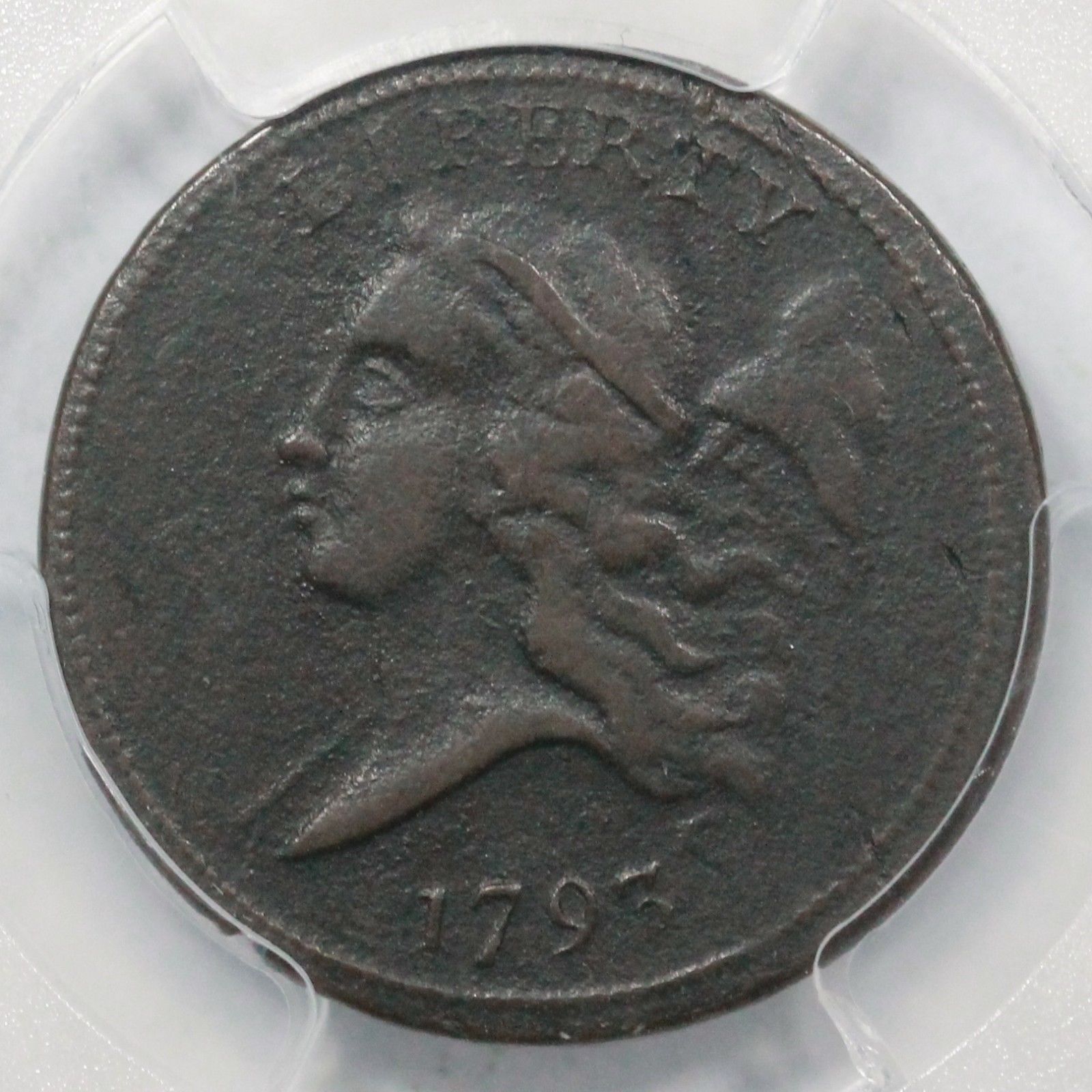Designer: Robert Scot, Henry Voigt
Composition: 95% Copper - 5% Tin and Zinc
History: The Flowing Hair design was the first major design to appear on US coinage. This design appears on several early US coins between the years of 1792 and 1795. These include the cent, hald dime, half dollar and dollar. Although the designer of the obverse image is unknown, the engraving is credited to Henry Voigt (Cent) and Robert Scot (Half Dime, Half Dollar and Dollar). Sources such as wikipedia credit Robert Scot with the design as well as the engraving (at least for the silver coins).
After the second year of production of the Flowing Hair design (1795), it was decided that this design would be replaced. It is unknown what prompted this change or who suggested it, though numismatic historian R.W. Julian speculates that Henry William de Saussure, who was named Director of the Mint on July 9, 1795, may have suggested it, as he had stated a redesign of the American coinage as one of his goals before taking office. It is also possible that the Flowing Hair design was discontinued owing to much public disapproval.
After the second year of production of the Flowing Hair design (1795), it was decided that this design would be replaced. It is unknown what prompted this change or who suggested it, though numismatic historian R.W. Julian speculates that Henry William de Saussure, who was named Director of the Mint on July 9, 1795, may have suggested it, as he had stated a redesign of the American coinage as one of his goals before taking office. It is also possible that the Flowing Hair design was discontinued owing to much public disapproval.
Item created by: Lethe on 2015-05-31 17:46:30. Last edited by gdm on 2018-01-09 11:08:29
If you see errors or missing data in this entry, please feel free to log in and edit it. Anyone with a Gmail account can log in instantly.
If you see errors or missing data in this entry, please feel free to log in and edit it. Anyone with a Gmail account can log in instantly.







